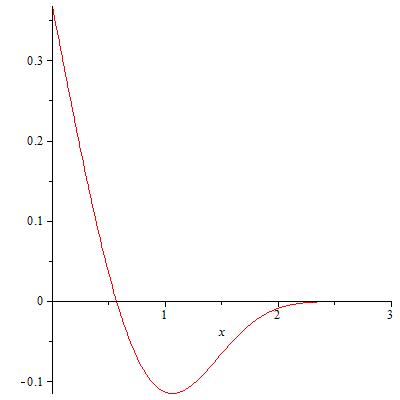The function $$f(x)=\exp(-\exp(x))$$ seems to do the job. Integrability, differentiability are clear, the derivative is $\exp(x)\exp(-\exp(x))$, and the function
$$
g(x)=f(x)+xf'(x)=\exp(-\exp(x))(1-x\exp(x))$$
has exactly one null at $W(1)$$W(1)\approx0.567$ (Lambert function), where it goes from positive to negative.:

